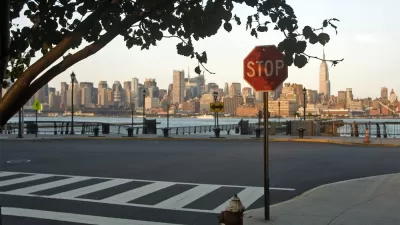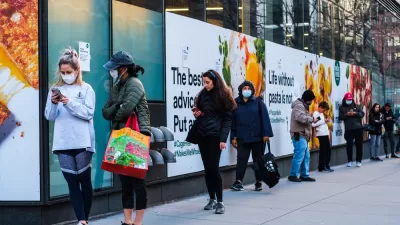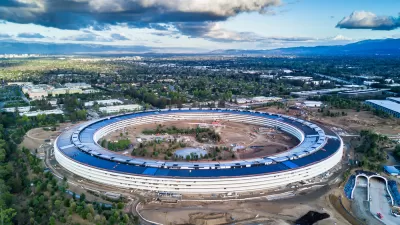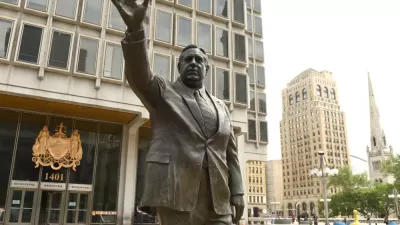Response to coronavirus challenges in urban settings will likely be a continuity of work started decades ago.

Widespread fears about the impact of the coronavirus pandemic on privacy and densification paint a picture of a frightening urban future. Contrarily, Ian Klaus shows a hopeful "radical vision of hope: As lifestyle and consumption habits have transformed overnight and governments have committed trillions of dollars of investment in national economies, perhaps the challenges of overcoming the coronavirus pandemic might ultimately foster a more equitable, sustainable urban future."
Klaus outlines five ongoing developments that could shape the cities post-pandemic:
- Affordable housing and accessible design will be celebrated as architects and urban designers continue to present innovative solutions to social issues around housing.
- The development of new building materials (think ultra-strong timber towers and biophilic design) promotes sustainability.
- Local leaders realizing the power to respond to challenges in transportation and housing.
- Networks of cities participating in collective action will continue to organize, elevating urban concerns to the global stage.
- Increased attention is paid to cities in the Global South. The resiliency of informal housing will inform future adaptation.
Studying the successes of recent history offers opportunities to identify the work that must continue and that will define wins in the future. Looking toward the challenges faced by urbanists in the post-coronavirus future Klaus adds, "We all already know much of what we will find and have to work with on the other side."
FULL STORY: The Post-Pandemic Urban Future Is Already Here

Alabama: Trump Terminates Settlements for Black Communities Harmed By Raw Sewage
Trump deemed the landmark civil rights agreement “illegal DEI and environmental justice policy.”

Study: Maui’s Plan to Convert Vacation Rentals to Long-Term Housing Could Cause Nearly $1 Billion Economic Loss
The plan would reduce visitor accommodation by 25% resulting in 1,900 jobs lost.

Why Should We Subsidize Public Transportation?
Many public transit agencies face financial stress due to rising costs, declining fare revenue, and declining subsidies. Transit advocates must provide a strong business case for increasing public transit funding.

Paris Bike Boom Leads to Steep Drop in Air Pollution
The French city’s air quality has improved dramatically in the past 20 years, coinciding with a growth in cycling.

Why Housing Costs More to Build in California Than in Texas
Hard costs like labor and materials combined with ‘soft’ costs such as permitting make building in the San Francisco Bay Area almost three times as costly as in Texas cities.

San Diego County Sees a Rise in Urban Coyotes
San Diego County experiences a rise in urban coyotes, as sightings become prevalent throughout its urban neighbourhoods and surrounding areas.
Urban Design for Planners 1: Software Tools
This six-course series explores essential urban design concepts using open source software and equips planners with the tools they need to participate fully in the urban design process.
Planning for Universal Design
Learn the tools for implementing Universal Design in planning regulations.
Smith Gee Studio
Alamo Area Metropolitan Planning Organization
City of Santa Clarita
Institute for Housing and Urban Development Studies (IHS)
City of Grandview
Harvard GSD Executive Education
Toledo-Lucas County Plan Commissions
Salt Lake City
NYU Wagner Graduate School of Public Service





























